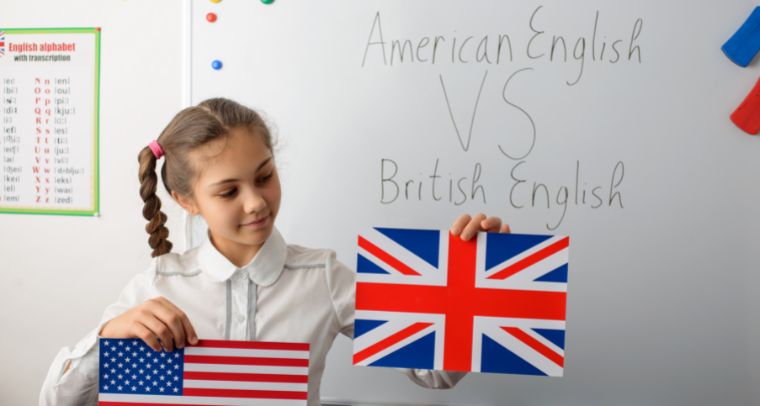Introduction
American English and British English are two different languages. They’re also different in terms of vocabulary, structure, grammar, and pronunciation. The difference between these two languages is more than just a matter of dialect; it’s about how words are used in everyday conversation and writing. The following guide will explain how British English differs from American English—and why that matters when you’re trying to communicate in your new role abroad!
American English
American English is the form of English used in the United States. It includes all English dialects spoken in the United States, including African American English, Appalachian English, and New York City English. American English is not a single dialect, but a collection of many different dialects.
British English
British English is the standard dialect of the English language as spoken and written in the United Kingdom. This dialect is spoken in England, Wales, Scotland, and Northern Ireland, and is also the official language of the United Kingdom. British English has a long history, and has been influenced by a variety of other languages over time. While it shares many similarities with other varieties of English, there are also some unique features of British English that make it distinct.
American vs British English: The Difference in Pronunciation
American English is more influenced by Latin and French, while British English is more influenced by Germanic languages.
One major difference between American and British English is pronunciation. American English is typically non-rhotic, meaning that the sound at the end of a word is not pronounced unless the next word starts with a vowel sound. British English is typically rhotic, meaning that the sound is pronounced even when the next word does not start with a vowel sound.
Some words that sound similar in one variety of language may have different spellings from another. For example, “color” has two different pronunciations: one for American usage and another for British usage (color).
Double ‘l’ vs Single ‘l’
American English uses double ‘l’ in words like travelling, labelled and cancellation. but British English prefers single ‘l’ – traveling, labelled and cancellation.
The same is true for the word “double”, which is spelled with two l’s in British English but one in American English (which also has many other differences).
Realise vs Realize
The British spellings of words like realise and organise have s, but the Americans drop it and use z instead – realize and organize.
Most Americans spell realize and organize with a z, but the British spell them as s and o. This is because the British spellings are more phonetic, which means they’re easier to pronounce because they sound like how the word sounds in English (for example, instead of “rise”).
- Words ending in our usually get an ‘or’ ending in American English, but retain their ‘our’ in British English – flavour/flavor, behaviour/behavior and neighbour/neighbor.
- British English uses ‘our’ in words like flavor, behaviour and neighbor.
- American English uses ‘or’ in words like flavor, behavior and neighbor.
Color vs Colour
Color is used in American English, and colour is used in British English. In both cases, the word refers to the hue of an object—the amount of light reflected from its surface.
In American English, color has a more specific meaning: it’s often used to refer to particular hues or shades (e.g., red-orange). It can also be used as a noun referring to these same colors or their representation (e.g., “I painted my walls with light blue paint”).
Color words like red are sometimes followed by adjectives describing how bright they appear on objects such as “bright red” or “purple.” An adjective can describe how much contrast there is between one shade of color and another—for example: “blue-green” describes something that looks blue but appears green when seen against something else; if you have purple-red hair then those strands would contrast nicely against your skin tone!
Caramel vs Caramel
Caramel is a type of candy that’s made from sugar and fat. It has a soft texture and can be flavored with chocolate or other flavors, such as vanilla. Caramels are often associated with Christmas because they’re eaten at holiday parties to celebrate the holiday season.
Caramel also refers to caramel color, which comes from combining caramel syrup with an acid (such as butterscotch). The resulting mixture has different properties than just plain old caramel syrup; for example it may have different shades depending on how long it sits before being used in cooking or baking.
Checkered vs Chequered
Perhaps you’ve encountered the word checkered, which is a pattern of alternating black and white squares. A checkered board is one that has such a pattern on it.
But have you ever seen chequered? That’s where we get our word from: it means “marked by squares,” or “having square-shaped holes.” The same goes for the word checkerboard—it’s just a different way of describing the same thing. In fact, according to Merriam-Webster Dictionary, checkerboard was originally used to describe “a game played on an uneven surface with two teams competing against each other by placing markers (pawns) into holes matching their color.”
Now let’s take another look at those words listed above: checkered vs chequered! If all three are interchangeable in meaning then why do people still use neither term when referring to patterns with alternating light/dark squares?
Fall vs Autumn
The two words are interchangeable in the English language, but they have different meanings. The word fall can refer to the season when leaves fall from trees or when it rains heavily. Autumn is a season that lasts from late summer into early winter and marks the end of summertime activities like picnics and barbecues. Both will occur at different times depending on where you live, but there are some general guidelines: If you live in North America (United States or Canada), fall will be around September/October while autumn is generally defined as mid-autumn; if you reside elsewhere (e.g., England), these dates may vary slightly depending on your location within Europe.
American vs British English: The Difference in Vocabulary
British English tends to be more formal than American English. In general, British people are more likely to use words like “please,” “thank you” and “excuse me.” This can be an indication of a person’s level of education and social status in their community.
Watch the telly vs. watch TV
Watching the telly is a British term for watching TV. The difference between “watch” and “watch TV” is that while it’s okay to say “I’m going to watch some television”, you can’t use this phrase if you’re talking about several different channels or programs being broadcast at once (for example, if you were watching several different shows on one channel). This also applies if your sentence has a negative connotation—for example: “I don’t want to watch any more television today!” would be considered rude because of its implication that there are still more shows available for me (or anyone else) to watch later on today.
The opposite of watching television would be something like “being busy”, where there isn’t any particular time frame involved with what someone does during their day; rather than having set hours during which one must sit down and do nothing but relax while enjoying whatever entertainment they choose from their favorite channels/webpages/etc., being busy means having lots happening all at once!
Lorry vs. truck
The American English term “truck” is used to refer to any large truck, while the British English term “lorry” refers to a type of truck. For example, if you wanted to say that your friend had taken a lorry ride across town, you would say something like “He went for a lorry ride.”
If you wanted to talk about smaller vehicles like cars and vans that are used for transporting things around town on wheels (i.e., trucks), then these would be referred to as lorries in British English but trucks in American English.
Kit vs. gear
- Kit: A set of things, like a kit for a bicycle.
- Gear: The mechanisms that drive a machine or vehicle.
- Gear is also used to describe clothing and equipment used in a particular activity. For example, say you want to go surfing with your friends and they’re all wearing wetsuits (a type of swimwear). You may want to wear something different than them—maybe shorts? But if you were going surfing with your mom or dad instead of friends, then maybe it would be better if everyone wore normal clothes instead of wetsuits because those types aren’t exactly made for swimming; they’re made for skiing!
Sweets vs. candy
Candy is a British term for sweets, which are common in the U.S., but used less frequently than their American counterpart. In fact, you’ll often hear that Americans refer to themselves as “sweet.”
Flashlight vs Torch
A flashlight is a small handheld light. It can be used for illumination, or it can help you find things in dark areas. If you’re looking for something in the dark, go ahead and use your flashlight! If you want to search with this tool, just keep saying “flashlight!” Or if someone else is using a flashlight on their phone or tablet (like me), then it’s okay if they don’t say “torch.” They won’t get confused by our differences in pronunciation; instead we’ll be able to communicate without having any misunderstandings about what exactly should be called “flashlights” versus “torches.”
Final Words
There are a variety of differences between American and British English, some of which can be very confusing for those who are not native speakers of either language. It is important to be aware of these differences in order to avoid making mistakes when writing or speaking in either language. With a little practice, it is possible to become proficient in both varieties of English.

